The Ultimate Guide to Increasing Dopamine Naturally
Lack of motivation? Feeling irritable? Learning how to actually increase your dopamine levels the right way could lead to a happier, more motivated you. But it’s not going to happen overnight.
If you want to get on that level, you’ve got to put in the work and make lifestyle changes. Only then can you consider boosting your natural levels with supplements. The problem is that there’s a lot of marketing gimmicks from fitness gurus, pseudoscientists, and dieticians.
So today, we want to talk about how to improve your daily life using only scientifically proven activities, foods, and supplements without any marketing. By the end, you’ll know all of the “life hacks” and tactics we use to overcome dopamine deficiency and live happier, healthier lives.
READ THIS FIRST - What is Dopamine?
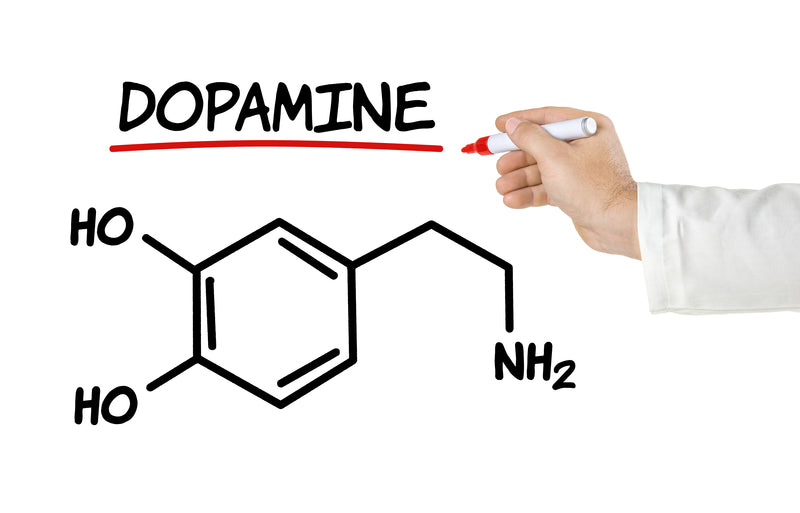
“To know your enemy, you must become your enemy” - Sun Tzu, the Art of War
If you want to understand how to increase dopamine naturally, we need to start with what dopamine actually is and why deficiency is lowering your quality of life. You can’t fight something until you understand it.
It’s best to think of dopamine on two levels: Scientific and everyday.
The Scientific Answer: Dopamine is a neurotransmitter - a “messenger” that sends signals between brain cells. It creates feelings of pleasure [1] and reward that motivate us to repeat behaviors, and is involved in everything from the way we move, to focus, mood, and motivation.
The Everyday Answer: You know that feeling when you eat a heavenly piece of chocolate lava cake? How about when you achieve a goal you’ve been working toward? That’s dopamine. It’s how we feel bliss, euphoria, and motivation. If your brain doesn’t get enough of it, we start to feel sluggish and depressed, and our brain function becomes impaired (people with depression often struggle to remember mundane information).
Dopamine is what makes us human - bliss, achievement, and greatness mixed with depression, addiction, and anxiety. It’s almost ironic, but increasing dopamine can actually lead to NEGATIVE effects. For example, you might feel temporary bliss from drugs, sex, or foods, but this could lead to long term consequences. Much more on this later.
If you like feeling stable, more motivated, and happier, then let’s learn more about dopamine.
Symptoms of Dopamine Deficiency
Is this you?
- Having trouble sleeping
- Lost interest in life
- Feeling lazy and unmotivated
- Constantly tired
- Fidgety
- Moody
- Excessive feelings of guilt or hopelessness
- Unable to remember basic things
- Brain fog stopping you from focusing
Symptoms of dopamine deficiency depend on the underlying cause. Are you clinically depressed or just not sleeping right? It’s hard to say. But if you’ve lost all interest in Game of Thrones (New season starting soon!), can’t get out of bed, or are addicted to caffeine or other stimulants, you need to take action immediately and improve your life.
You only live once.
Dopamine - What, When, and Where
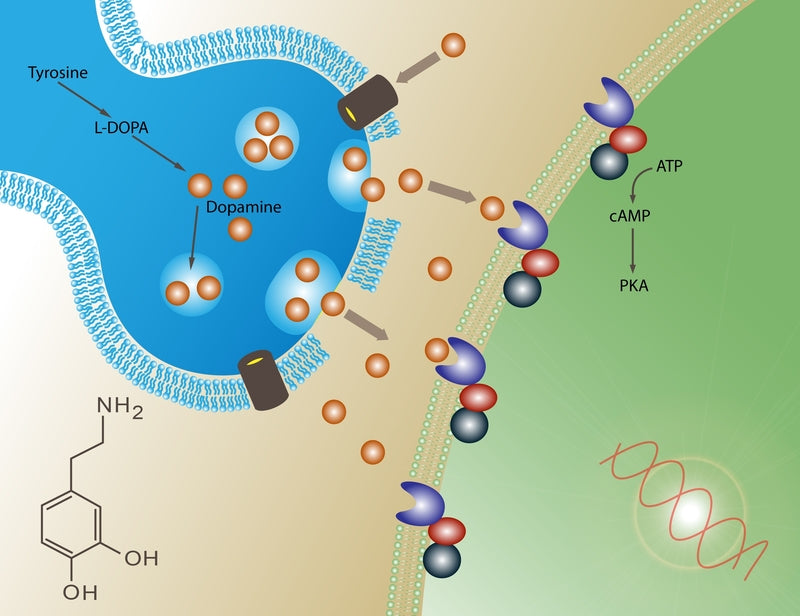
What Releases Dopamine?
Dopamine is released by neurons in the hypothalamus via a process known as exocytosis (basically, just your cells moving large amounts of chemicals from inside the cell to the outside).
It is released when we experience a “reward” or even anticipate a major reward for something. That’s sometimes why the build up to something (like planning a vacation) is more exciting than the reward itself.
When is Dopamine Released?
Dopamine is released by pleasurable situations such as sex, exercise, or eating something when you’re hungry. It’s your brain’s way of convincing you to repeat behaviors that it enjoys.
You’ll probably experience great feelings along with a flood of energy so you can seize the reward your brain thinks you’ve earned. The reward of feeling high, satisfied, or euphoric is also the mechanism behind addiction.
Where is Dopamine Produced?
Dopamine is produced by several areas of the brain, including the substantia nigra and the ventral tegmental area. Together, these two areas are smaller than the size of a postage stamp.
How to Increase Dopamine Levels the Natural Way
You can increase your dopamine levels using meditation, diet, exercise, sleep, and a ton of other techniques. That’s what makes biohacking so great in our opinion: You are in control of your body. Not some drug.
The problem is most of the ways you’re probably using to get a dopamine fix are actually hurting your quality of life and preventing you from achieving happiness.
Stick to the natural way, make steady improvement every day, and put in some effort. You’ll start noticing a little more energy, happiness, and productivity every day.
Meditation

If you are serious about boosting your dopamine levels, you HAVE TO start with meditation. It’s been proven in numerous research studies to physiologically impact the brain, including increasing dopamine release [2]. Basically, what you are doing is training your brain to pay attention to specific things (positive thoughts, a certain person, or a stimulus), and a more focused brain decreases symptoms of depression and anxiety.
Seriously, it requires no extra food, supplements, or activity, and increases your focus, reduces stress, and improves your mood. What do you have to lose?
Cut out the Sugar
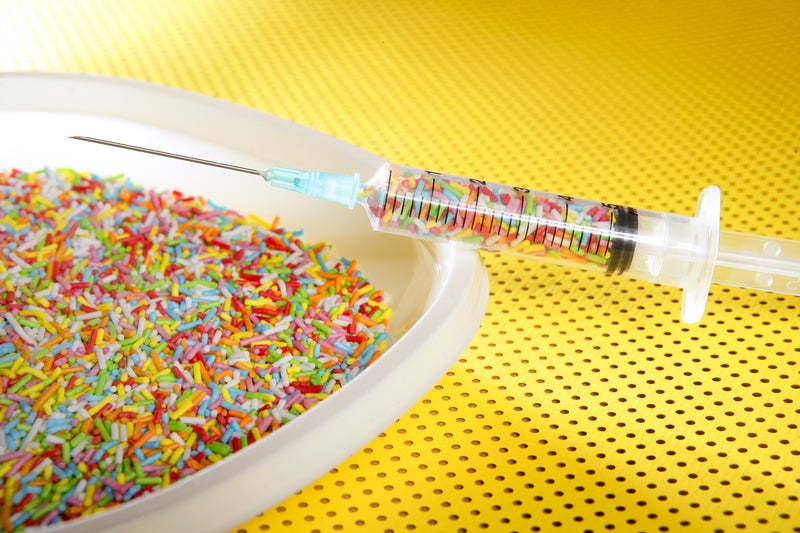
Every donut you eat that comes with extra frosting, sprinkles, and filling comes with another, more serious topping: Depression.
Seriously, the link between sweet foods and depression is all too clear [3]. So every time you succumb to your desires for a midnight gas station candy bar, you’re killing your figure AND your mental state.
Sugar follows the same pathways in your brain as alcohol and drugs. It triggers a quick “reward” and then an inescapable crash that leaves you lifeless in bed watching YouTube.
Sure, you might get that quick rush, but temporary fixes lead to long term problems. Keep sugar to a minimum.
3 Alternatives to Sweeteners
Get Off Your A** And Exercise

There’s nothing more frustrating than being depressed and hearing your friends say “just exercise more”. Except that they’re actually on to something.
Think about it - we evolved in the wild where physical fitness was crucial for survival. Using our bodies as they were meant to regulates brain function and increases dopamine synthesis [4].
Exercising more improves your appearance, mental health, and physical well being. That’s a powerful anti-depression cocktail. It could be a walk in nature or a hardcore basketball session in the park. Do whatever it takes to exercise and try to reach that runners high.
Eat Foods That Increase Dopamine
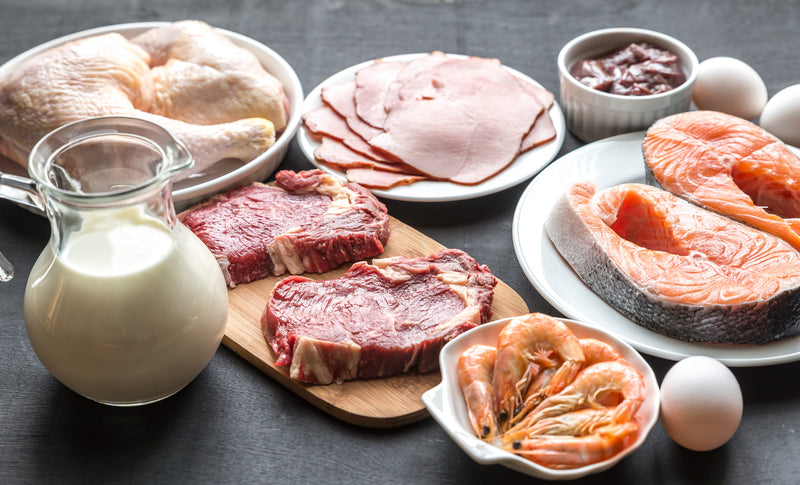
Dopamine comes from the dopamine precursor tyrosine (as well as phenylalanine), and tyrosine-rich foods could help increase dopamine levels.
At the very least, a good diet or even restricting food intake can increase dopamine receptors [5]. Don’t expect to miraculously find a new zest for life because you gorged on salmon and cherries, but eating well has an extreme impact on our mental health. One study even concluded that healthy dietary patterns are associated with low risk of depression [6].
Remember, it’s all related!
Dopamine-enhancing foods are mostly high-protein foods that are all-natural. Including:
It’s hard to significantly increase dopamine levels through food intake alone. It’s just one of the many contributing factors to being happier, more productive, and more focused. That’s why so many people turn to supplementation (more on that at the end).
Foods That DECREASE Dopamine
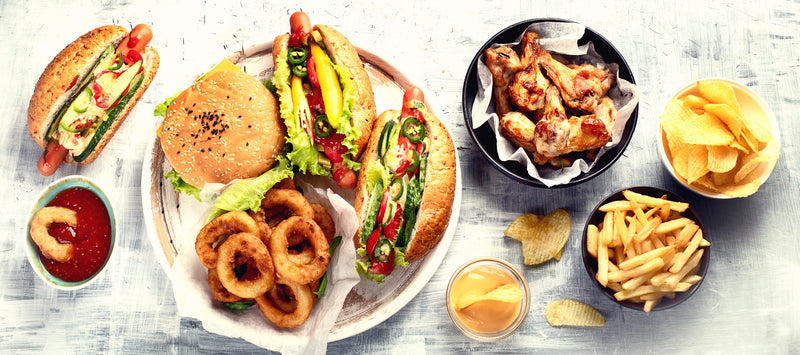
Foods that decrease dopamine are:
Basically, any foods that are high-fat or high-sugar. It sounds counterintuitive, but any food that makes you go “hmmmmmm, I LOVE THIS!”, is probably bad for your long-term dopamine production.
Limit Coffee Intake
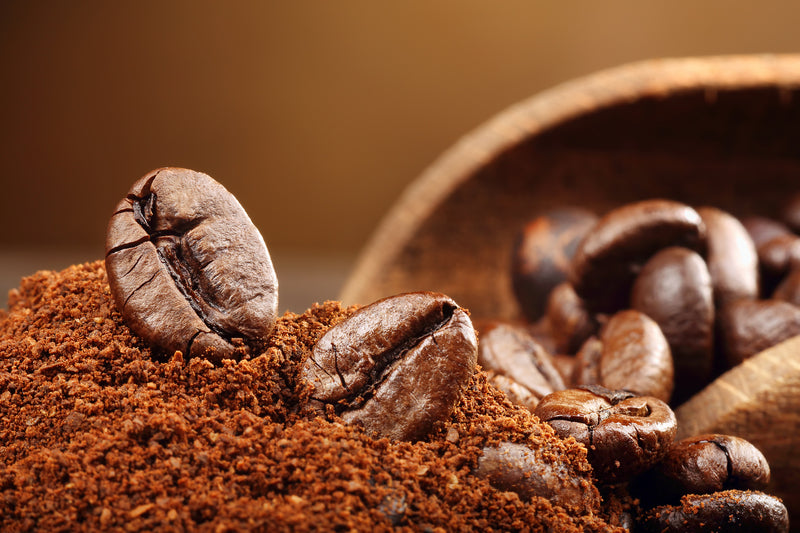
“COOOFFFEEEEEEEEEE” - Hordes of zombies masquerading as humans every morning around the world
Coffee is amazing. It helps you do dumb things faster with more energy. For most of us, it helps us get into the groove and start our day off right without wanting to hurt anyone.
Thing is that those feelings are only temporary. Sure, you get the quick boost (the “reward”), but none of the long-term benefits. In fact, the long-term effects are mostly negative.
Caffeine actually affects the brain’s rewards center the same way as cocaine and heroin, just to a much lesser degree. It gives you an adrenaline rush for energy and focus and manipulates your dopamine production, but it severely affects your sleep and results in a devastating crash. The only cure is MORE CAFFEINE. See the problem?
If you must have some, reach for green tea instead.
Be More Social

We are all inherently social animals. Don’t get us wrong, we love isolation and Netflix as much as the next guy, but there’s no denying the link between social interaction and a healthy brain.
Hanging out with friends, meeting new people, and interacting socially triggers a rewarding feeling in our brains. Science has proven that successful social interactions are one of the most rewarding stimuli for humans [7].
So even if you’re feeling shy, don’t want to go out, hate being in groups, or just want to be lazy and be left alone all day, fight that urge and try to get some human interaction. We are not meant to be isolated.
In one study, when dopamine receptors were activated in a group of mice, this prompted them to interact with others in the group. Fascinating!
“Social interactions are no doubt important for our mental health and play a role in conditions such as schizophrenia and depression. Interestingly, these disorders are also associated with dysfunction of dopamine neurons," - Mark Ungless, Neurophysiology Group - Imperial College London
Do Activities That Release Dopamine
Sex, drugs, and rock and roll. Want a jolt of dopamine straight in the feels? Start getting more of these things in your life.
We are only half kidding… Just make sure you don’t overdo it or you’ll risk addiction.
Remember, it’s all about balance. Your end goal is to live a lifestyle that promotes the healthiest version of yourself. No single activity is going to make you a dopamine machine.
Take Supplements to Increase Dopamine
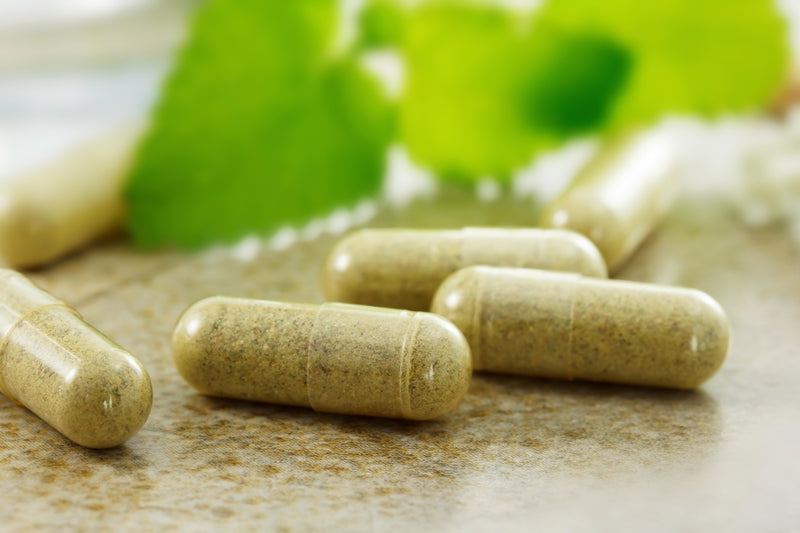
If you want to be more focused, productive, and happier, dopamine supplements have proven to be effective to boost mood, cognition, and concentration among other things.
There is no cure all supplement out there, and taking supplements won’t help you if the rest of your life isn’t in order.
You can’t supplement out a bad diet, poor mental state, or addictions. If you want our advice, focus on yourself first and use supplements exactly as they’re intended: As a SUPPLEMENT and not a crutch.
The Science Behind Supplementation - Know Before You Buy
Dopamine is your body’s way of rewarding you for doing the things it needs to do.
It incentivizes us to make babies, go to work, interact with others, and achieve goals; everything right down to getting out of bed in the morning (even when it’s the last thing you want to do). That’s why low levels of it are associated with depression, lack of motivation, and addiction.
But you can’t just put pure dopamine into your brain. Dopamine supplements are actually the essential amino acids phenylalanine and tyrosine. Your body then synthesizes dopamine (via L-Dopa) from them. It’s just like how we make gas from crude oil. Cars run on gas, but we’ve got to refine crude oil into gas first. You wouldn’t put crude oil into your gas tank, right?
So your goal should be to supplement your L-dopa, tyrosine, and phenylalanine levels. But here’s why supplementing is not the catch-all solution to your low dopamine levels.
Why Supplementing is Not Enough to Increase Dopamine
Simply increasing the raw materials in your brain is not enough to sustainably increase your dopamine levels long term. Actually, it could do the opposite.
Science has shown that overabundance of raw materials could force the body to downregulate dopamine function to normalize your natural levels.
For sustainable, long-term increased levels of dopamine, your goal should be to increase your raw materials slightly while increasing your body’s dopaminergic functioning. Think of it like upgrading your capacity to refine crude oil rather than just bombarding the refinery (your brain!) with more and more oil (causing an overload).
OK, now that we’ve got that out of the way. There are a several types of supplements will help you live a happier, more fulfilling life and reach your dopamine goals.
Shameless plug: We do have a supplement - Dopify™ - made from all of the most potent ingredients that will make your life A LOT easier. There’s no substitute for a good diet, but taking in all of that excess food is just not possible for most of us. Instead, you can use the most potent dopamine enhancers in one shot.
Can You Increase Dopamine and Become More Motivated, Happier, and Energetic?

Yes, you can. But your goal should be to improve your ability to process dopamine more than to increase your raw dopamine levels. That’s where most people get it wrong.
Simply pumping your body full of tyrosine and phenylalanine can actually backfire and make your condition worse. Increasing your body’s dopaminergic functioning requires a good diet, exercise, and avoiding overstimulation from caffeine, drugs, alcohol, sex, or media. Honestly, there’s a good chance you are just burned out and nothing natural can excite you anymore (turn off social media!).
If your ability to process dopamine is in order, THEN supplements will take you to the next level. If you have low natural levels of dopamine, increasing your supply of raw materials will help even more.
A healthier, happier, more motivated you is within reach. Are you ready to work for it?
References
[1] https://www.sciencedaily.com/releases/2016/08/160831085320.htm[2] https://www.ncbi.nlm.nih.gov/pubmed/11958969
[3] https://www.ncbi.nlm.nih.gov/pmc/articles/PMC5532289/
[4] https://www.ncbi.nlm.nih.gov/pubmed/12758062
[5] https://www.sciencedaily.com/releases/2007/10/071025091036.htm
[6] https://www.sciencedirect.com/science/article/pii/S0165178117301981
[7] https://www.ncbi.nlm.nih.gov/pmc/articles/PMC2889690/
[8] https://www.ncbi.nlm.nih.gov/pmc/articles/PMC58814/
[9] https://www.ncbi.nlm.nih.gov/pubmed/2736402
[10] https://www.ncbi.nlm.nih.gov/pubmed/23625424
[11] https://www.selfhacked.com/blog/s-adenosyl-l-methionine/
[12] https://www.ncbi.nlm.nih.gov/pubmed/19059299
[13] https://www.ncbi.nlm.nih.gov/pmc/articles/PMC2828029/
[14] https://www.ncbi.nlm.nih.gov/pubmed/27908257
